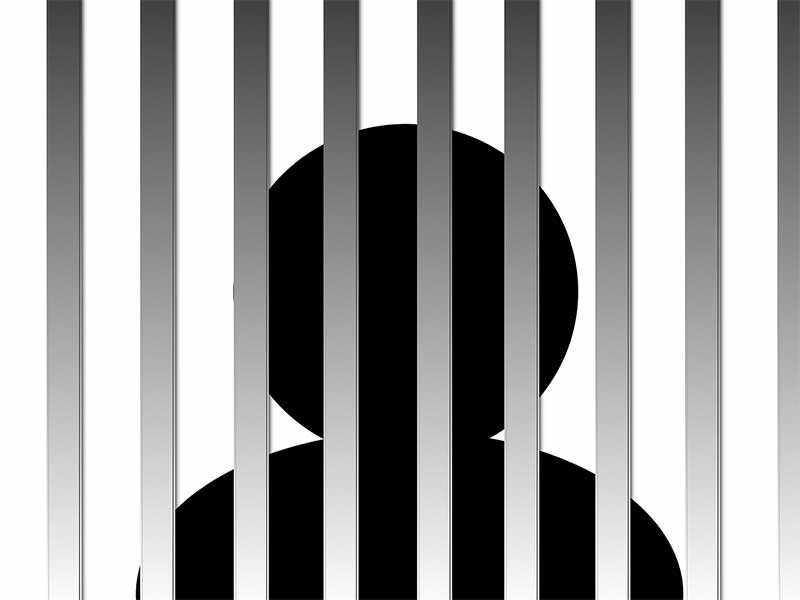1. Why does Contempt of Court exist?
The law of contempt of court exists to uphold and ensure the effective administration of justice.
This overriding principle has been emphasised by the Courts over the years. Indeed, Judges have also emphasised that contempt of court does not exist to protect the personal dignity of the judiciary.
For example, Lord President Clyde said as follows in 1926 (in Johnson v Grant [1923] SC 789):
"... contempt of court ... consists in interfering with the administration of the law; in impeding and perverting the course of justice. ... It is not the dignity of the Court which is offended -- a petty and misleading view of the issues involved -- it is the fundamental supremacy of the law which is challenged."
2. Civil Contempt of Court
Civil contempt of court refers to the Court's power to punish for breach of its orders.
What orders count?
But not all orders count. The general rule is that you can only be sent to prison for contempt of court if:
- You have breached an injunction or an undertaking.
- That injunction or undertaking has a penal notice on it.
- That injunction or undertaking has been personally served on you.
Let's explore these three points in more detail.
Breach of an injunction or undertaking
An injunction is an order of the court requiring you to do something or prohibiting you from doing something.
This is a bit abstract, so some examples might help.
An order of the Court prohibiting you from doing something might:
- Be a freezing injunction, prohibiting you from disposing of, dealing with or dissipating your assets until a certain point in the future.
- Be an injunction prohibiting an individual from carrying out certain building works or from engaging in certain anti-social activities.
- Be an injunction prohibiting a person from entering a certain area (eg going within 100 yards of a particular property).
- Be an injunction in a business context prohibiting a company from holding a meeting on a certain topic or from entering into a particular contract.
A court order requiring you to do something might:
- Require you to give disclosure about your financial affairs.
- Require you to let a search party into your property to look for documents and evidence (a search order).
- Require you to give an individual access to premises (for example, a tenant or a company's director might have been improperly excluded).
- Require you to comply with your contractual obligations (an order for specific performance).
Sometimes applications for injunctions are resolved by consent. Here, the person against whom an injunction has been sought will often promise the court that he will/will not do something. Such a promise is called an undertaking. If it is not complied with, it can be punished in the same way as breaching an injunction.
What about failing to pay money?
This is a really interesting question. At the end of most trials, the Court will order one party to pay money to the other. And, sometimes, the party required to make the payment fails to do so.
Is this contempt? The answer is: not usually.
You may have heard the expression 'debtors prisons', especially if you have read any Dickens. In early Victorian times, it was really common for people to be imprisoned for failing to pay money that they had been ordered to pay by a Court.
But this was abolished by the Debtors Act 1869. Now, the only situations in which you can be imprisoned for failing to pay a sum of money are:
- Where you fail to pay a family court maintenance order: s. 5 of the Debtors Act 1869.
- Where you fail to pay your taxes: s. 5 of the Debtors Act 1869 and s. 76 of the Magistrates' Courts Act 1980.
- Six further exceptions contained in s. 4 of the Debtors Act 1869, which include fiduciaries failing to comply with orders to pay money in their possession or under their control, lawyers failing to pay wasted costs orders imposed for misconduct, and bankrupts failing to comply with orders to pay their salary or income to creditors.
- Where an undertaking has been given to the Court that monies will be paid.
Penal Notice
A Penal Notice is a warning that is attached to injunctions which warns the person to whom they are addressed that they risk being punished if they breach the injunction's terms.
The standard form penal notice reads as follows:
PENAL NOTICE
If you, Joe Bloggs, disobey this order you may be held to be in contempt of court and may be imprisoned, fined or have your assets seized.
And other person who knows of this Order and does anything which helps or permits any Respondent to breach the terms of this Order may also be held to be in contempt of Court and may be imprisoned, fined or have their assets seized."
Although the Court has a discretion to commit a person to prison even if an injunction does not have a penal notice, the usual rule is clear: without a penal notice, it is inappropriate to punish a person for contempt of court.
Personal service
Similarly, the usual rule is that the Court will not punish a person for breaching an injunction unless it has been personally served on the respondent.
"Personal service" means that the order is actually handed to the respondent.
The Court has a discretion to dispense with personal service in appropriate circumstances. For instance, a respondent may be evading service and the Court may be persuaded that service by another means (email, text message, delivering the order to a particular individual) will bring the order to the respondent's attention.
Such dispensation can be ordered both prospectively and retrospectively, though it is rare for it to be ordered where the injunction is mandatory in nature.
3. Criminal Contempt of Court
Criminal contempt does not concern the breach of orders and undertakings.
It instead arises where a person does an act which interferes with the administration of justice with an intention to interfere with the administration of justice.
Wide definition
If that sounds like a wide definition, it is because it is. Criminal contempt of court can be committed in all sorts of contexts.
Here are some examples:
- When a party threatens a witness who is going to give evidence against him.
- When a party pays a witness to give false evidence on his behalf.
- When a party forges a document for use in court proceedings.
- When a party doctors a Court order.
- When a person disrupts Court proceedings. There are some amusing examples in the law reports, including when laughing gas was poured into a court's ventilation systems, and when copies of a set of law reports were thrown at Lord Denning.
- When a witness refuses to answer a question or knowingly gives false evidence on oath.
- When an observer records court proceedings without permission.
- When a juror discloses details of a jury's deliberations.
The elements of criminal contempt
The law in relation to criminal contempt was crisply re-stated in by the Divisional Court in Attorney General v Davey [2013] EWHC 2317 (Admin).
There, the Court explained that:
- Conduct is intended to interfere with the administration of justice if there is a real risk, as opposed to a remote possibility, that it will have this effect.
- It is rare that a court will have direct evidence of a person's intention. But it can infer what his intention was by looking to the probable consequences of his conduct and all the circumstances of the case.
- An intention to interfere with the administration of justice need not be a sole intention.
4. Procedure
A person alleged to have committed a contempt of court is entitled to a number of procedural safeguards
(1) Proof beyond reasonable doubt
First, and perhaps most obviously, a person who has committed a contempt of court risks up to two years' imprisonment. As such, contempt proceedings are classified as 'quasi-criminal' in nature. This means that a charge of contempt must be proved 'beyond reasonable doubt' (and not merely on the 'balance of probabilities', the usual civil standard).
(2) Prosecution disclosure
A person charged with contempt is entitled to have disclosure of documents which may assist his case, or undermine the case of the prosecution, in advance of trial.
As Mr Justice Teare explains in JSC BTA Bank v Ablyazov [2011] EWHC 1522 (Comm), one of the biggest fraud cases of the 21st century:
"It seems to me that if the Bank has a document which damages its case on the contempt allegations or assists Mr Ablyazov's case fairness requires that such document be disclosed."
(3) Right to silence
Thirdly, a person charged with contempt is entitled to remain silent and to require the charge against him to be proved by the prosecution. This means that he cannot be required to put in written evidence in opposition to the allegation, nor can he be forced to give oral evidence.
(4) Right to Prosecutorial Independence
In a contempt of court application, the applicant is typically the other party to the proceedings. This can cause a problem: if two parties are locked in a civil dispute, it can be difficult for one of them to act impartially in the context of a contempt application.
But act impartially they must do.
In a recent decision in high-profile oligarch litigation, Chernukhin v Deripaka [2020] EWHC 1798 (Comm). There, Andrew Baker J observed that (at [145]):
"The contempt application ought to have been pursued dispassionately by the claimants as parties with no interest in the outcome. It was instead pursued in aggressive, partisan fashion, as if it were just the latest round in this long-running, ‘no-holds barred’, commercial litigation wrestling match."
5. Punishment
The Court has a range of punishments it can impose on a person found guilty of contempt of court.
(1) Imprisonment
First, and most importantly, the Court can impose a sentence of imprisonment of up to two years: see s. 14 of the Contempt of Court Act 1981.
A few further points should be mentioned:
- A sentence of imprisonment can be suspended, for example on condition that a contemnor complies with a particular order or does not commit a specified type of activity.
- A contemnor only actually serves one half of their sentence: see s. 258 of the Criminal Justice Act 2003.
- Courts typically take into account three main factors in determining sentence: (i) what period of imprisonment is required to punish; (ii) what period of imprisonment is required to deter the contemnor and others from committing contempts; and (iii) (where appropriate) what period of imprisonment is required to coerce the contemnor into belated compliance with an order (which period may be remitted in the event of such belated compliance).
(2) A fine
There is no limit to the sum that the High Court can impose by way of fine, though the County Court has a limit of £2,500: see s. 14(2) of the Contempt of Court Act 1981.
(3) Confiscation of property
A third option is for the Court to order the confiscation of a contemnor's property (previously called sequestration). This is a temporary measure, designed to coerce a contemnor into belated compliance with an order. It will not always be appropriate and it is little used.
(4) Costs penalty
A finding of serious contempt of court is usually accompanied by an order that the contemnor pay the applicant's costs of establishing the contempt on an indemnity basis. In certain circumstances, the court may conclude that this is sufficient punishment.





